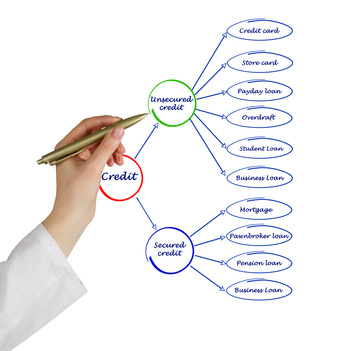Personal loans differ from the mortgages and car loans in one big way: they’re unsecured. That means that there’s no collateral associated with them. Your eligibility for a personal loan will depend on many of the same things as a mortgage or car loan, including your credit score, income and existing debt. That said, personal loans can have significantly different consequences if you find yourself unable to pay them back.
Before you commit to a personal loan, ask yourself these three questions and keep the answers in mind when making your decision.
How Will These Loan Payments Affect My Finances?
Make sure you know whether you can afford a personal loan before you sign on the dotted line. In order to make that decision, you should take stock of your financial situation.
 What will your budget look like while you’re paying off the loan? Will you be able to cover all of your living expenses, including food and transportation? Will you still be able to contribute to your savings while you’re paying off the loan? Can you make small sacrifices to make everything work?
What will your budget look like while you’re paying off the loan? Will you be able to cover all of your living expenses, including food and transportation? Will you still be able to contribute to your savings while you’re paying off the loan? Can you make small sacrifices to make everything work?
Don’t forget that you can reduce or eliminate nonessential expenses. When you’re trying to decide whether you can afford a personal loan, you may want to consider which of your usual expenses, such as eating out or cable, you can realistically reduce.
How Much Will the Loan Cost?
As with many other kinds of loans, the cost of your personal loan will vary according to a few different factors. They include:
Your credit score
The loan amount, or principle
The repayment term
Your employment status or assets
You may be able to shop around for a better deal on your loan, but most lenders will base your rates and eligibility on these statistics.
Your credit score gives potential lenders an idea of how likely it is that you’ll be able to repay the loan, and smaller loans are less risky than larger ones. Additionally, the longer you have to repay the loan, the more you’ll usually accrue in interest and fees.
The interest rate is an easy way to compare loan costs, but it’s not the only expense you’ll be paying. Make sure you have a clear picture of any fees, like closing costs, that you may have to pay in addition, when you’re evaluating the total cost.

What Will Happen If I Can’t Repay the Loan?
Unsecured loans aren’t backed by collateral. With a mortgage or car loan, both of which are secured loans, the lender can sell the associated property if you default. However, with an unsecured personal loan, they don’t have this recourse.
Instead, they can often take you to court to recover the money that you owe. This is a lengthy process, and it can compound the amount you’ll have to pay back. Once a judgment has been issued, your lender can also file to have money deducted directly from your bank accounts or your wages. This process will also have a substantial, negative impact on your credit score.
Because of these potential consequences, you want to be sure that you’ll be able to repay a personal loan before you sign.
Before you take out a personal loan, consider your overall financial situation, what the loan will cost, and whether or not you can reasonably expect to repay it. Personal loans can be a valuable financial tool if you use them carefully.
